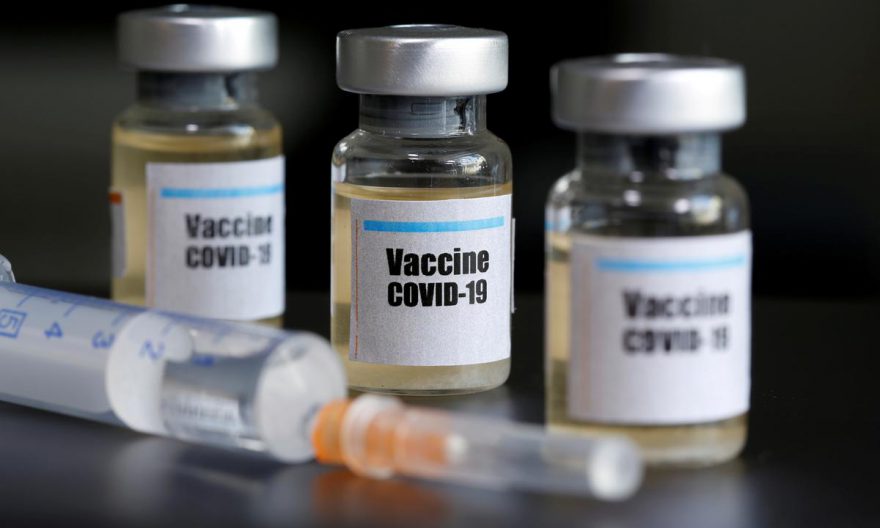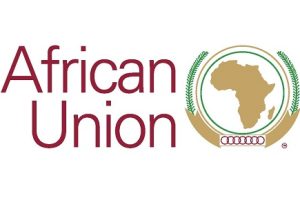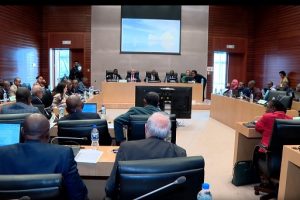
BY STAFF REPORTER
A Group of Seven plan to donate 1 billion COVID-19 vaccine doses to poorer countries lacks ambition is far too slow and shows Western leaders are not yet on top of tackling the worst public health crisis in a century, according to Reuters.
While the head of the United Nations welcomed the move, even he said more was needed. Antonio Guterres warned that if people in developing countries were not inoculated quickly, the virus could mutate further and become resistant to the new vaccines.
“We need more than that,” he said of the G7 plan. “We need a global vaccination plan. We need to act with a logic, with a sense of urgency, and with the priorities of a war economy, and we are still far from getting that.”
U.S. President Joe Biden and British Prime Minister Boris Johnson had used the G7 summit in England to announce the donation of 500 million and 100 million vaccines respectively for the world’s poorest nations.
Canada is expected to commit to sharing up to 100 million doses and other pledges may follow after Johnson urged G7 leaders to help inoculate the world’s nearly 8 billion people against the coronavirus by the end of next year.
But health and anti-poverty campaigners said that, while donations were a step in the right direction, Western leaders had failed to grasp that exceptional efforts were needed to beat the virus. Help with distribution was also necessary, they said.
Former British Prime Minister Gordon Brown, who has been pushing for richer countries to share more of the cost of vaccinating developing countries, said the G7 pledges were more akin to “passing round the begging bowl” than a real solution.
“It’s a catastrophic failure if we can’t go away in the next week or two … with a plan that actually rids the world of COVID now we’ve got a vaccine,” he told Reuters.
Alex Harris at Wellcome, a London-based science and health charitable foundation, challenged the G7 to show the political leadership the crisis demanded.
“What the world needs is vaccines now, not later this year,” he said. “We urge G7 leaders to raise their ambition.”
COVID-19 has ripped through the global economy, with infections reported in more than 210 countries and territories since the first cases were identified in China in December 2019.
The race to end a pandemic that has killed around 3.9 million people and sown social and economic destruction will feature prominently at the three-day summit which began on Friday in the English seaside resort of Carbis Bay.
British foreign minister Dominic Raab warned that other countries were using vaccines as diplomatic tools to secure influence.Britain and the United States said their donations would come with no strings attached.
Vaccination efforts so far are heavily correlated with wealth: the United States, Europe, Israel and Bahrain are far ahead of other countries. A total of 2.2 billion people have been vaccinated according to Johns Hopkins University data.
As most people need two vaccine doses, and possibly booster shots to tackle emerging variants, charity Oxfam said the world would need 11 billion doses to end the pandemic.
“If the best G7 leaders can manage to donate 1 billion vaccine doses then this summit will have been a failure,” Oxfam’s health policy manager Anna Marriott said.
Oxfam also called on G7 leaders to support a waiver on the intellectual property behind the vaccines.
French President Emmanuel Macron has said intellectual property rights should not hinder access to vaccines during a pandemic, appearing to back Biden on the subject.
An open letter delivered to UK Prime Minister ahead of G7 summit says Covid-19 is the greatest challenge of our time. Thanks to a tremendous global effort, science has given us the exit strategy. UK Science has been core to breath-taking advances that gave the world Covid-19 vaccines in record time. We should be proud of the role we’ve played.
At home, the UK vaccination rollout has been a phenomenal success and has already saved countless lives. Yet, globally too many countries still lack doses to protect healthcare workers and the most vulnerable.
As President of the G7, the UK has the opportunity to set the standard for global action on sharing doses. Three months ago, you proudly pledged that the UK would share vaccines with the world. Now we ask that you turn this pledge into reality.
The staggering progress with our national roll-out, combined with everyone playing their part in respecting tough but necessary restrictions, means we are on the cusp of all restrictions lifting.
Freedom will however be short lived if the UK fails to share access to the huge supply of vaccines it has secured – enough to fully vaccinate the entire UK population twice over.
As long as the virus continues to circulate, it will continue to mutate. We have already seen first-hand how quickly new variants can emerge and travel. We cannot rule out variants against which our vaccines and treatments no longer work.
COVAX, the international vaccine equity initiative is 190 million doses short of where it needs to be. High-income countries, including the UK and G7, which have secured the majority of existing supplies are the only ones who can makes doses available right now.
We can share vaccines now and still meet UK vaccination targets. The truth is, the UK cannot afford not to share its vaccines. The world won’t be safe while any single country is still fighting the virus. Failing to act now risks reversing our hard-won progress.
The UK must now show the historic leadership needed to end this crisis, by sharing at least 20% of available doses between now and August and calling on G7 together to commit to sharing 1 billion doses over 2021 and fully fund the ACT-Accelerator. This is both achievable and essential if we are to have a real impact on the pandemic. It must start at once, with a clear plan for how this will be scaled up as countries become more protected.
This is the best way to protect the UK, end the pandemic as quickly as possible and save the greatest number of lives. It’s our best shot of life returning to normal.
Decisions made at next week’s summit will define the 21st century. We ask you and other G7 leaders to rise to this challenge and end this crisis for good.We will only beat this virus by acting globally.
As learnt from BBC, leaders of the major industrial nations have pledged one billion Covid vaccine doses to poor countries as a “big step towards vaccinating the world”, Boris Johnson has said.
At the end of the G7 summit in Cornwall, the PM said countries were rejecting “nationalistic approaches”.
He said vaccinating the world would show the benefits of the G7’s democratic values. There was also a pledge to wipe out their contribution to climate change.
After the first meeting of world leaders in two years, Mr Johnson said “the world was looking to us to reject some of the selfish, nationalistic approaches that marred the initial global response to the pandemic and to channel all our diplomatic, economic and scientific might to defeating Covid for good”.
He said the G7 leaders had pledged to supply the vaccines to poor countries – including 100 million from the UK – either directly or through the Covax scheme, which is being co-led by the World Health Organization, Gavi and the Coalition for Epidemic Preparedness Innovations.
The communique issued by the summit pledges to “end the pandemic and prepare for the future by driving an intensified international effort, starting immediately, to vaccinate the world by getting as many safe vaccines to as many people as possible as fast as possible”.
It also includes steps to tackle climate change, with leaders re-committing to the target of reaching net zero greenhouse gas emissions by 2050 at the latest and pledging to eliminate most coal power.
Mr Johnson rejected suggestions the vaccines pledge was a moral failure by the G7 as it was not enough to cover the needs of poorer countries.
He referred to the UK’s involvement in the development of the Oxford-AstraZeneca vaccine.
“Already of the 1.5 billion vaccines that have been distributed around the world, I think that people in this country should be very proud that half a billion of them are as a result of the actions taken by the UK government in doing that deal with the Oxford scientists and AstraZeneca to distribute it at cost,” he said.
He added that “we are going flat out and we are producing vaccines as fast as we can, and distributing them as fast as we can”.
The target to vaccinate the world by the end of next year would be met “very largely thanks to the efforts of the countries who have come here today”, Mr Johnson said.
The Ethiopian Herald June 18 /2021





